- Lead: Emma Cavazzoni
- Collaborators: Haly.Id, Phytosanitary Consortium of Modena
- Location: Italy
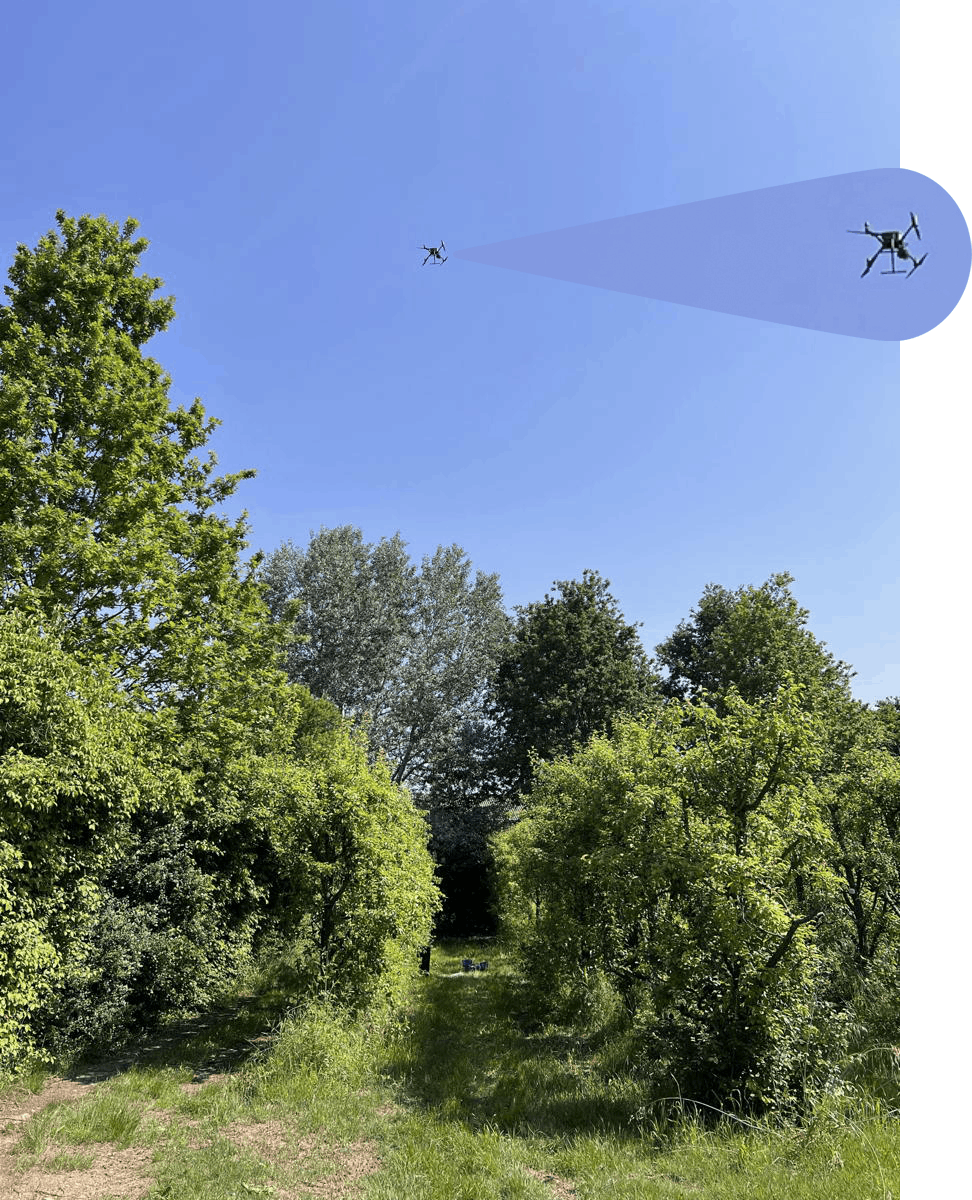
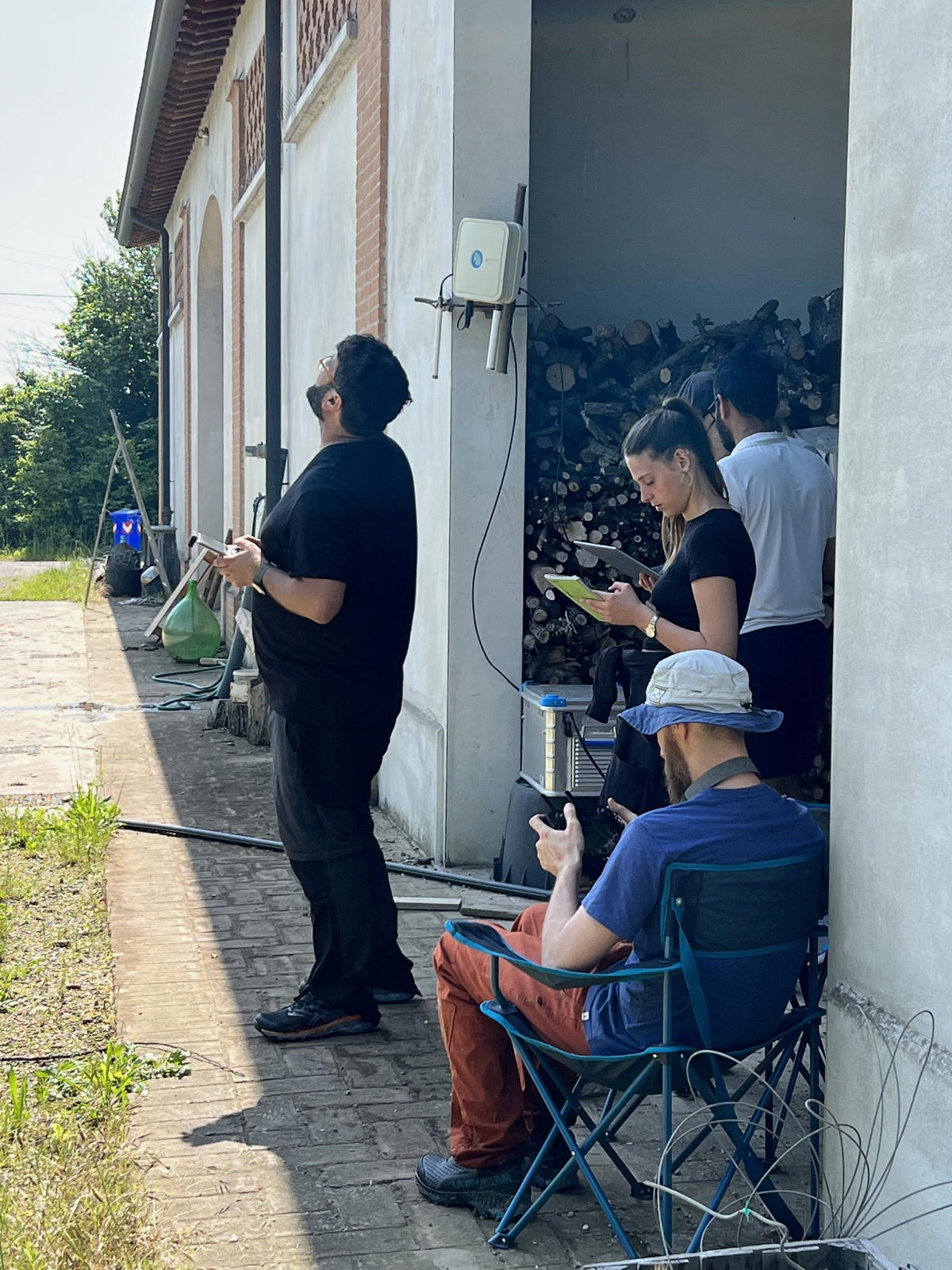
In innovative data-intensive approaches to biology, the perspective on data and their participation in theory-making has transformed, data acquired their own value beyond the experimental context which produced them. Collecting, visualising, mobilising, and integrating them became a valuable activity by itself, that can contribute to scientific discovery. Thanks to new computational technologies for producing, disseminating, and analysing data, scientists now have access to unprecedented amounts of data, including data they did not produce themselves.
Within this framework, we want to investigate several aspects concerning data-intensive methods and their impact on plant science research. We ground our reflections on a collaboration with the Phytosanitary consortium of Modena, and the Haly.Id project in Northern Italy, whose goal is to generate and deploy a high volume of data collected through remote sensing in the field as well as laboratory analysis, in order to limit the damage inflicted by Halyomorpha halys to fruit production.
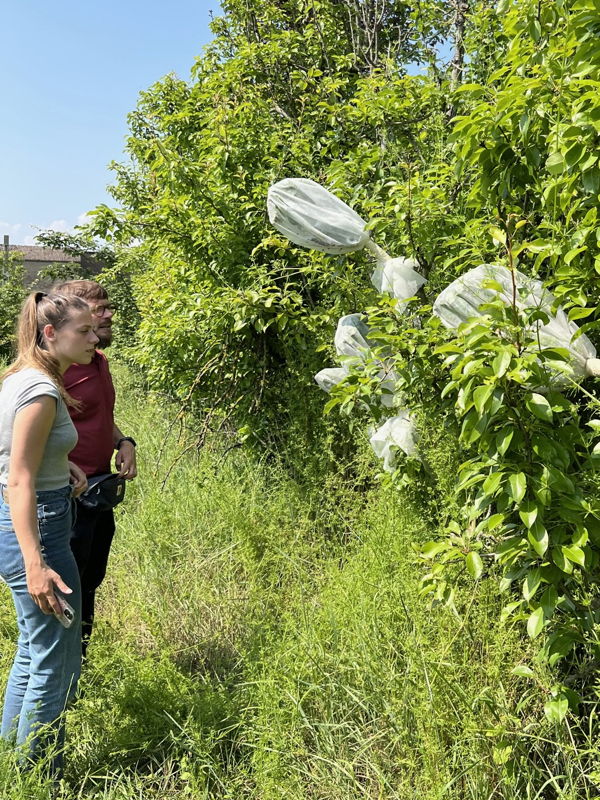
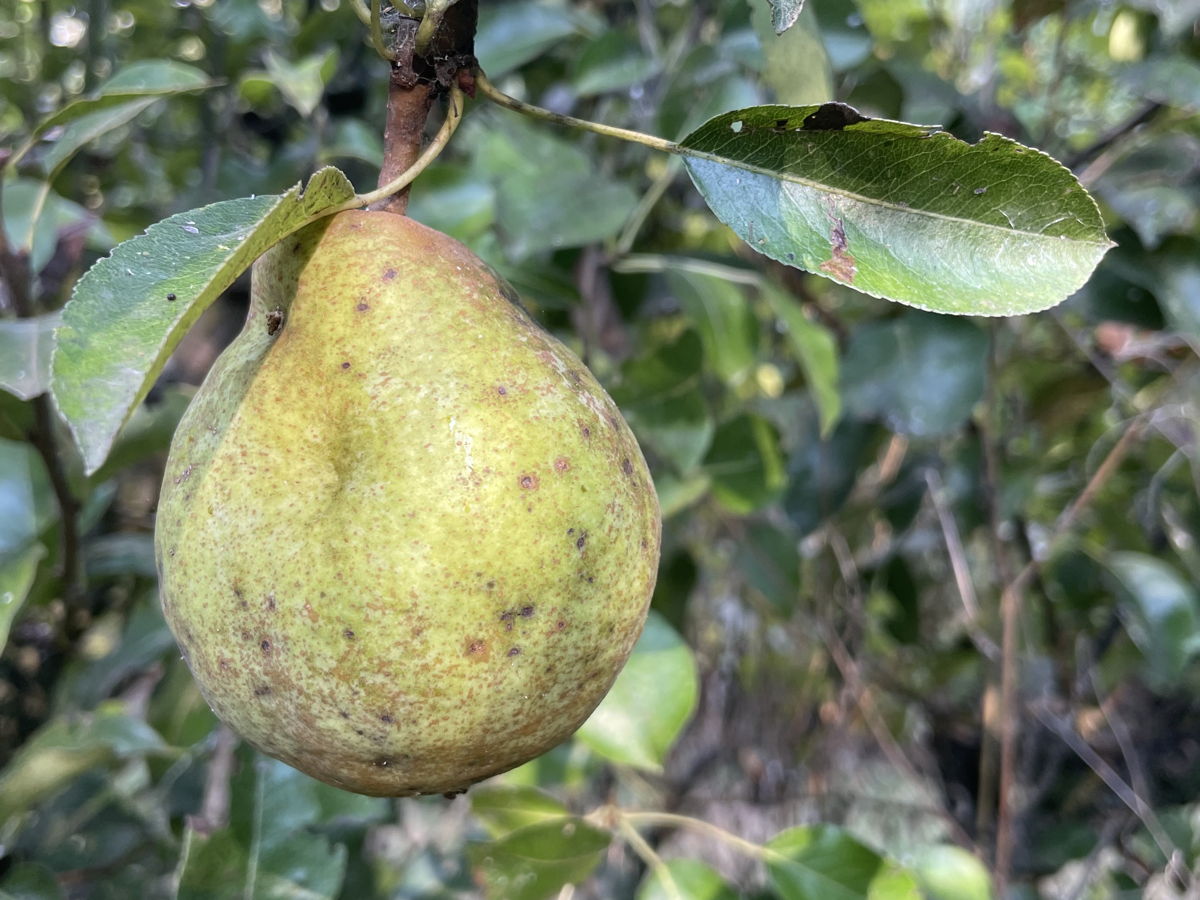
We intend to explore:
- How existing data collection technologies are adapted to biological goals and knowledge.
- The role that data collection technologies play in determining what model systems are developed and used in specific plant science projects, and in turn how the ways biological objects are treated —i.e., model systems developed for use across both field and lab settings— influence the technologies developed to generate relevant data, the target phenomena, the research design, the choice and calibration of measurement instruments, and the set-up of experiments.
- The type of communities that emerge from sharing the same data and data collection technologies.
Publications
Posters
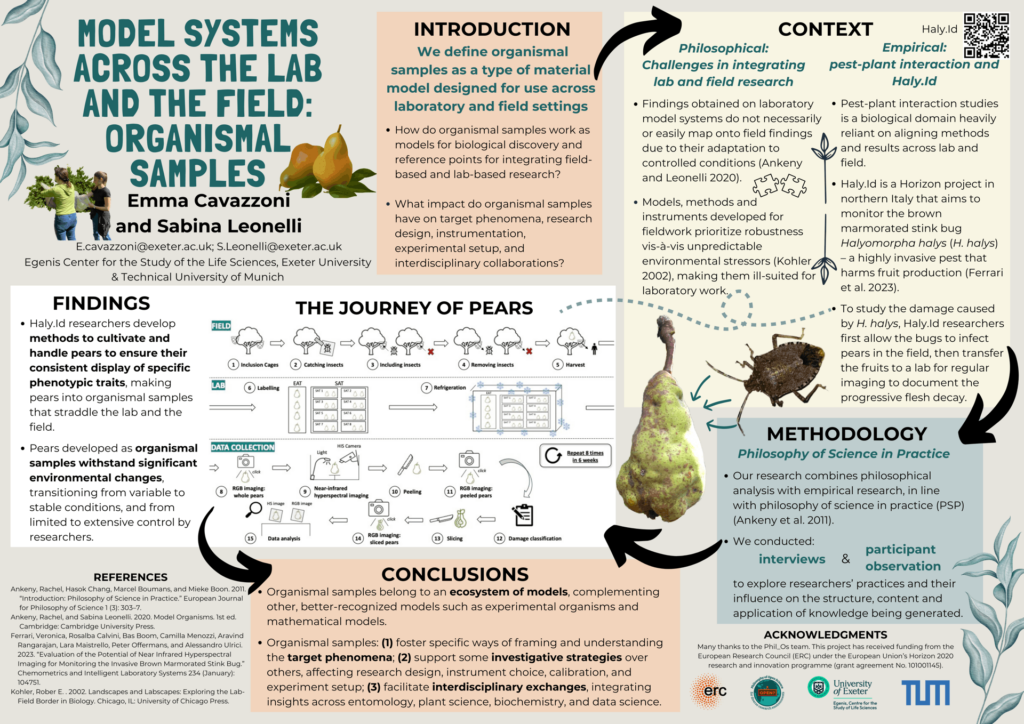
- Tenth Biennial Society for Philosophy of Science in Practice (SPSP) (University of South Carolina, 16/05/24-18/05/24): “Why Open Science Needs Philosophy”
- Cavazzoni, E. and S. Leonelli (2024) Model Systems Across the Lab and the Field: Organismal Samples. Poster prepared for the Egenis Conference “Understanding Life in a Changing Planet” (Exeter University, 17/04/24 – 19/04/24).
Peer-reviewed articles
- Cavazzoni, E. and S. Leonelli (Forthcoming). Model systems across the lab and the field: organismal samples.
Book chapter
- Cavazzoni, Emma, and Sabina Leonelli (Forthcoming). Data-Intensive Research, Technologies, and Epistemic Risks.” In: Riesch, Hauke, Sandra González-Santos, and Neil Stephens (Eds.) Research Handbook on the Sociology of Science and Technology.
Other
- Cavazzoni, Emma, and Rose Trappes (2023). Philosophy of Open Science for Diverse Research Environments. SPSP Newsletter, 20.
Presentations
Invited talk
- Society for Experimental Biology Centenary Conference (Edinburgh, 04/07/23 – 07/07/23): “Data-Intensive Pest-Plant Interaction. Studies Across the Lab and the Field: Philosophical Perspectives”
Submitted talks
- Forum on Philosophy, Engineering, and Technology (fPET) (Karlsruhe Institute of Technology, 17–19 September 2024): “Sharing Data, Sharing Technologies: Data-Technology Communities in Haly.Id”
- Tenth Biennial Society for Philosophy of Science in Practice (SPSP) (University of South Carolina, 16/05/24 – 18/05/24): “Model Systems Across the Lab and the Field: Organismal Samples”
- Philosophy of AI and Digital Infrastructures workshop (Exeter University, 06/11/23 – 17/11/23):
“Sharing Data, Sharing Technologies. Data-Technology Communities in Haly.Id” - International Society for the History, Philosophy and Social Studies of Biology (ISHPSSB) Biennial Meeting (University of Toronto, 09/07/23 – 15/07/23): “Data Communities from Shared Technologies: Bringing Drones into Field Research”. Part of the symposium “Data Communities”
- “Whither Open Science? PHIL_OS Exploratory Conference” (Exeter University, 30/03/23 – 31/03/23): “The Use of Data-Intensive Methods in Plant Science: Drones and Camera Traps in Haly.Id”